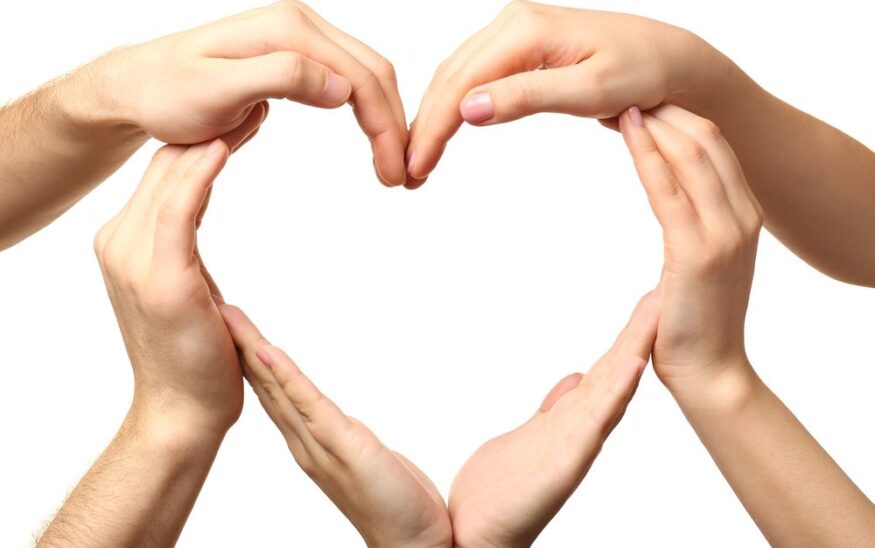How to make kindness a state of mind
Why our greatest strengths come from soft skills
Kathleen Quinn Votaw //November 30, 2015//


How to make kindness a state of mind
Why our greatest strengths come from soft skills
Kathleen Quinn Votaw //November 30, 2015//
When someone asks “How are you?” why don’t we answer honestly? It should be okay to mention that we are struggling with a problem or concern, but instead we bury any chance of connection by saying something like “I’m fine, thanks.” Without going into a lot of detail, we should be honest. Being vulnerable with each other is what makes us human—and it’s what allows us to give and receive kindness. Rather than protecting ourselves from each other, we should be building strong connections that make life more beautiful for everyone everywhere—including at work.
CEOs Marcus Lemonis of “The Profit,” and Daniel Lubetzky of KIND Healthy Snacks are doing just that. They spoke at the 2015 Inc. 5000 conference in October, both brilliantly confirming that our greatest strengths spring from the “soft” skills that bring out our humanity, and along with it success.
Marcus Lemonis was born in Beirut during the civil war and was quickly adopted into an affluent Lebanese family in Miami who owned two of the largest Chevy dealerships in the U.S. It was natural that Marcus spent his early career in the automobile industry. But within a few years, he became an inventor, serial entrepreneur, television personality and philanthropist. He’s known primarily for “The Profit,” a TV reality show where he saves small struggling businesses with his own money and advice. Along the way, he also became the CEO of Camping World and Good Sam Enterprises and started the Good Samarian Foundation. With such a diverse and expansive history, Marcus has built countless business relationships which he bases on shared vulnerability.
He often begins relationships by telling people that he wanted to kill himself when he was 12 because he was fat. He still hates looking in the mirror and, despite his successes, confesses that he’s insecure and lacks self- confidence. He shares his vulnerability so that he can connect with people on a very personal level, and more than that, so that each of them benefits from the connection. Whether you or someone you know has an eating disorder; you are insecure about how you look; or you lack confidence in some other aspect of yourself, when you hear his story you can’t help but feel connected to Marcus in a special way. Because he shows his humanity you don’t feel judged, and you’re free to show your humanity in return. That in itself is an act of kindness.
Marcus takes his vulnerability to work, believing that by sharing it with employees he’s showing how much he loves them. I love people who talk about love in the workplace—and Marcus talked a lot about how important it is. He believes that it’s essential for leaders to stay close to employees because employees depend on them for their very livelihood. Without a close connection it’s impossible for leaders to provide the meaningful support that sustains relationships—and business, for that matter.
Daniel Lubetzky comes from a completely different background, but somehow came to a complementary philosophy. His accomplishments are many, and include founding PeaceWorks and KIND, where he serves as CEO, and co-founding Maiyet. He is also the author of the NY Times bestseller Do the KIND Thing. Daniel is the son of a Holocaust survivor and a Mexican Jew. From the beginning, he has been on a mission to make the world a little kinder—a value instilled by his father. He remembers his father saying that he survived because of the kindness of others, even small kindnesses like German soldiers dropping him an apple. Now Daniel integrates kindness into everything he does, from performing random acts of kindness on the street to managing several global enterprises on a foundation of kindness.
PeaceWorks Inc., which he founded in 1994, produces a small variety of gourmet food products. The company aptly lives its name by bringing together people who don’t normally work cooperatively to make their products: Israelis, Arabs and Muslims; and Christians, Buddhists and Muslims. A percentage of profits goes to the PeaceWorks Foundation and One Voice Movement whose mission is to foster peaceful coexistence in the world. Drawing from the PeaceWorks experience, Daniel cofounded Maiyet in 2010 to promote self-sufficiency and entrepreneurship among artisans in the developing world.
Daniel was a little ahead of the market, and the Internet, when he introduced his healthy, gluten-free KIND bars in 2004. He described the early days as stuffing his car full of bars and driving to every high-traffic retail store in New York City to try to convince people to sell them—and he didn’t get paid until they sold. Fast forward a few years, and KIND became the fastest growing healthy snack in the booming bar category and a billion-dollar company. Kindness is spread through a marketing campaign based on The KIND Movement, with the goal of inspiring kind acts and making kindness a state of mind everywhere.
This is the time of year where most of us feel more connected to family, friends and colleagues–and a time when we’re kinder to strangers. I wonder how different the world would be if we, like Marcus and Daniel, extended this sense of connection year round … if we developed the strength to be both vulnerable and kind … I think we’d discover each other’s humanity as well as our own.
























